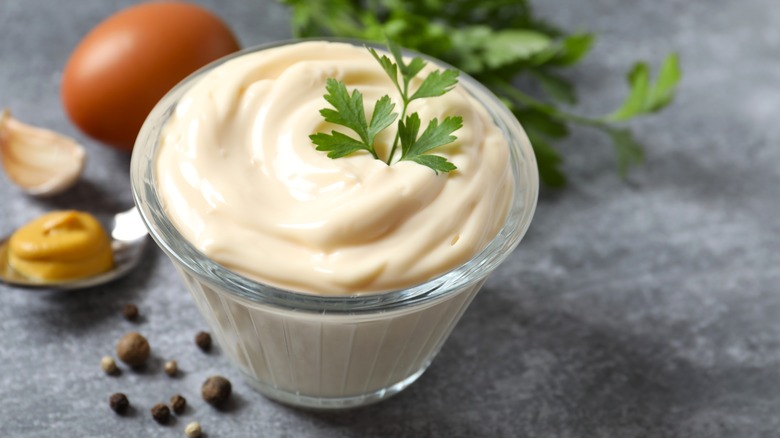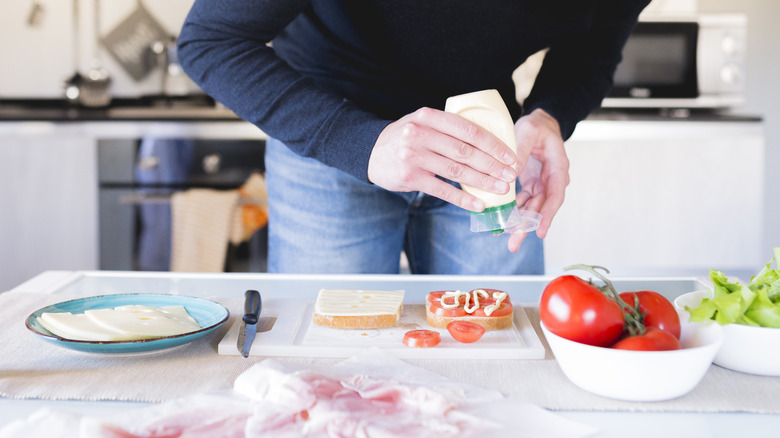You Can Freeze Mayo, But Should You?
Mayonnaise has been a kitchen staple since its invention. Whether you're spreading it on a burger, binding tuna salad ingredients together, or making a homemade ranch dressing, mayonnaise is a culinary secret weapon. But like all tasty things (aside from a select few foods that don't expire), mayo doesn't last forever. Because it's made from a roster of perishable ingredients including egg yolks and oil, store-bought mayonnaise stays fresh for up to two months after opening, according to the USDA. The federal agency notes that scratch-made varieties, on the other hand, stay fresh for only four days. To extend its shelf life, you might be wondering if you can freeze mayonnaise. The short answer is yes, but just because you can doesn't mean you should.
Although freezing mayonnaise can safely preserve it, the low temperatures will damage its texture and render it inedible. When exposed to freezing temperatures, the water content in mayo transforms into ice crystals, effectively breaking the bonds between the oil and the water in the eggs and undoing the emulsion. When thawed, frozen mayonnaise becomes a lumpy, watery mess of separated ingredients that's unfit for spreading, binding, and dipping. Because of this, it's best to eat your mayo within the recommended timeframes and avoid freezing it to maintain its creamy consistency and intended flavor.
Maximizing the shelf life of mayonnaise
Mayonnaise is a utilitarian ingredient used in many recipes, so it's good to make the most of out the time you have with it. Luckily, there are some basic measures worth taking to maximize its shelf life.
To avoid common food safety mistakes, homemade and store-bought mayonnaise should both be stored in a refrigerator set to at least 40 degrees Fahrenheit after preparing and opening them, respectively. Limit their exposure to warmer temperatures and discard mayo of any variety if it has been displaced from the refrigerator for more than two hours. Avoid cross-contamination by using clean utensils when handling mayonnaise, ensuring the container is free from any residue or contaminants, and not dipping any food directly into the jar.
Because it lasts longer than homemade varieties, store-bought mayonnaise is a better option if longevity and convenience are the name of your game. If you prefer scratch-made goods, we don't blame you. When making homemade mayo, however, always use pasteurized eggs. Those that are unpasteurized are more likely to harbor bacteria unfit for consumption in their raw form. Unfortunately, eggs cannot be pasteurized at home, so you'll need to purchase them from the store. Acid components like lemon juice and apple cider vinegar can improve the flavor of your homemade mayonnaise with a tangy twist while simultaneously functioning as preservatives, slowing the growth of bacteria.
Whatever you do, don't put the condiment in the freezer. Though it certainly will freeze, it's a quick way to ruin a perfectly good batch of ready-to-use mayonnaise.

